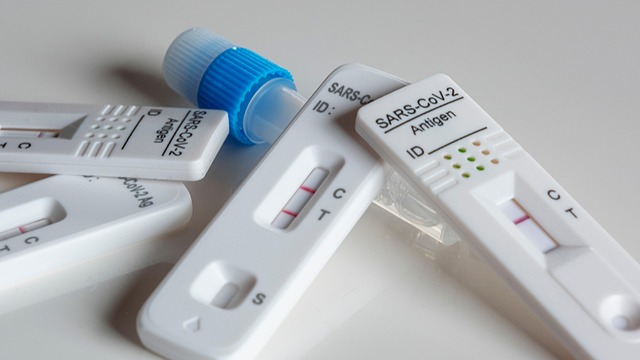The Standard Liver Blood Test UK (LFTs) is a key diagnostic tool for assessing liver health by measuring enzymes and proteins like ALT, AST, ALP, GGT, and bilirubin. Results help detect damage or disease, track progression, and evaluate treatments, often included in routine check-ups. Effective communication of these results is vital for medical professionals to build trust and encourage proactive liver health management.
Liver function tests (LFTs) are essential tools for medical professionals, offering crucial insights into liver health. This comprehensive guide delves into the world of LFTs, with a specific focus on the Standard Liver Blood Test UK. We explore key metrics, from alanine aminotransferase (ALT) to alkaline phosphatase (ALP), and provide expert advice on interpreting results effectively. Understanding these tests is vital for accurate diagnosis and effective patient communication.
- Understanding Liver Function Tests
- Standard Liver Blood Test UK: Key Metrics
- Interpreting and Communicating Test Results
Understanding Liver Function Tests

Liver function tests (LFTs) are a series of blood tests that help medical professionals assess how well your liver is working. Often, they’re referred to as the standard liver blood test UK. These tests measure levels of certain enzymes and proteins in your blood, which can indicate the health of your liver. Elevated levels of these substances might suggest damage or disease within the liver. LFTs are commonly used to diagnose liver conditions, monitor the progression of liver disease, and assess the effectiveness of treatment. They’re also frequently included in routine medical check-ups to detect potential liver issues early on.
Standard Liver Blood Test UK: Key Metrics

In the UK, a Standard Liver Blood Test is a crucial diagnostic tool for assessing liver health and functionality. This test measures several key metrics that provide valuable insights into a patient’s liver condition. The primary indicators include alanine aminotransferase (ALT), aspartate aminotransferase (AST), alkaline phosphatase (ALP), gamma-glutamyl transferase (GGT), and bilirubin levels.
ALT and AST, often referred to as transaminases, are enzymes found in liver cells. Elevated levels of these enzymes indicate potential liver damage or inflammation. ALP is another enzyme that, when elevated, suggests biliary tract issues or liver problems. GGT, also an enzyme, is useful for identifying alcohol-related liver damage or certain medications. Bilirubin, a breakdown product of red blood cells, can point to liver dysfunction or blockages in the bile ducts. Together, these metrics offer medical professionals a comprehensive overview of a patient’s liver health during a Standard Liver Blood Test UK.
Interpreting and Communicating Test Results

Interpreting and communicating test results is a critical aspect of any medical professional’s role, especially when dealing with liver function tests (LFTs). The standard Liver Blood Test UK provides a comprehensive overview of liver health by measuring various enzymes, proteins, and bilirubin levels. These results are then analysed to identify abnormalities that could indicate liver damage or disease. Communicating these findings effectively is just as vital. Medical professionals must translate complex laboratory data into clear, actionable information for patients. This involves explaining the significance of each result, discussing any deviations from the normal range, and addressing patient concerns in a comprehensible manner.
A balanced approach is key; providing sufficient detail without overwhelming patients with medical jargon. By offering personalised explanations tailored to individual understanding, healthcare providers empower patients to actively participate in their care. This collaborative communication fosters trust and encourages proactive management of liver health, especially for those identified with potential issues through standard LFTs.
Liver function tests are invaluable tools for medical professionals, enabling them to assess liver health and make informed decisions. The Standard Liver Blood Test UK provides critical metrics to interpret and communicate results effectively. By understanding these tests and their implications, healthcare providers can accurately diagnose and manage liver-related conditions, ultimately enhancing patient care and outcomes.
